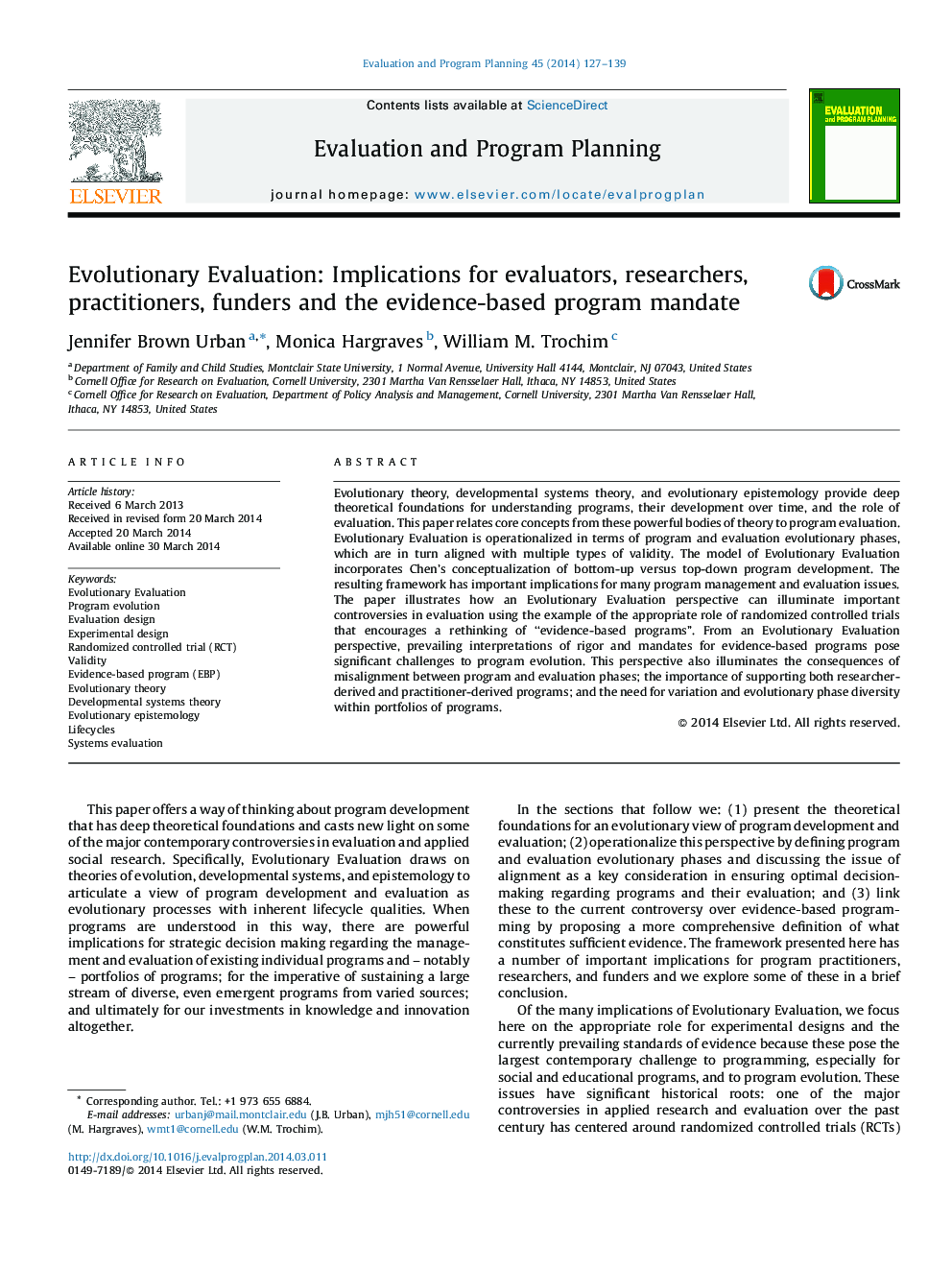| Article ID | Journal | Published Year | Pages | File Type |
|---|---|---|---|---|
| 322476 | Evaluation and Program Planning | 2014 | 13 Pages |
•Present the theoretical foundations for Evolutionary Evaluation (EE)•Operationalize EE by defining program and evaluation evolutionary phases.•Discuss phase alignment to ensure optimal decision-making for programs &evaluation.•Discuss implications of EE for how “evidence-based programs” are defined.•Discuss implications of EE for management of individual & portfolios of programs.
Evolutionary theory, developmental systems theory, and evolutionary epistemology provide deep theoretical foundations for understanding programs, their development over time, and the role of evaluation. This paper relates core concepts from these powerful bodies of theory to program evaluation. Evolutionary Evaluation is operationalized in terms of program and evaluation evolutionary phases, which are in turn aligned with multiple types of validity. The model of Evolutionary Evaluation incorporates Chen's conceptualization of bottom-up versus top-down program development. The resulting framework has important implications for many program management and evaluation issues. The paper illustrates how an Evolutionary Evaluation perspective can illuminate important controversies in evaluation using the example of the appropriate role of randomized controlled trials that encourages a rethinking of “evidence-based programs”. From an Evolutionary Evaluation perspective, prevailing interpretations of rigor and mandates for evidence-based programs pose significant challenges to program evolution. This perspective also illuminates the consequences of misalignment between program and evaluation phases; the importance of supporting both researcher-derived and practitioner-derived programs; and the need for variation and evolutionary phase diversity within portfolios of programs.
